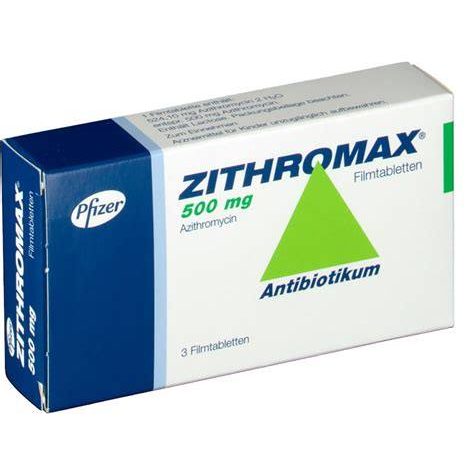How Long Does Azithromycin Stay In System?

Azithromycin is used to treat certain bacterial infections, such as bronchitis; pneumonia; sexually transmitted diseases (STD); and infections of the ears, lungs, sinuses, skin, throat, and reproductive organs. Azithromycin also is used to treat or prevent disseminated Mycobacterium avium complex (MAC) infection [a type of lung infection that often affects people with human immunodeficiency virus (HIV)]. Azithromycin is in a class of medications called macrolide antibiotics. It works by stopping the growth of bacteria.
Antibiotics such as azithromycin will not work for colds, flu, or other viral infections. Using antibiotics when they are not needed increases your risk of getting an infection later that resists antibiotic treatment.
Azithromycin has been studied as part of a possible treatment combination for COVID-19. This is the illness caused by the new coronavirus. It is not known if this drug is effective for treating COVID-19, and it is not FDA-approved for this use. Azithromycin shouldn’t be used to prevent or treat COVID-19 unless it’s used in a clinical trial.
How should Azithromycin be used?
Azithromycin comes as a tablet, an extended-release (long-acting) suspension (liquid), and a suspension (liquid) to take by mouth. The tablets and suspension (Zithromax) are usually taken with or without food once a day for 1–5 days. When used for the prevention of disseminated MAC infection, azithromycin tablets are usually taken with or without food once weekly. The extended-release suspension (Zmax) is usually taken on an empty stomach (at least 1 hour before or 2 hours after a meal) as a one-time dose. To help you remember to take azithromycin, take it around the same time every day. Follow the directions on your prescription label carefully, and ask your doctor or pharmacist to explain any part you do not understand. Take azithromycin exactly as directed. Do not take more or less of it or take it more often than prescribed by your doctor.
Shake the liquid well before each use to mix the medication evenly. Use a dosing spoon, oral syringe, or measuring cup to measure the correct amount of medication. Rinse the measuring device with water after taking the full dose of medication.
If you receive azithromycin powder for suspension (Zithromax) in the single-dose, 1-gram packet, you must first mix it with water before you take the medication. Mix the contents of the 1-gram packet with 1/4 cup (60 mL) of water in a glass and consume the entire contents immediately. Add an additional 1/4 cup (60 mL) of water to the same glass, mix, and consume the entire contents to ensure that you receive the entire dose.
If you receive azithromycin extended-release suspension (Zmax) as a dry powder, you must first add water to the bottle before you take the medication. Open the bottle by pressing down on the cap and twisting. Measure 1/4 cup (60 mL) of water, and add to the bottle. Close the bottle tightly, and shake well to mix. Use the azithromycin extended-release suspension within 12 hours of receiving it from the pharmacy or after adding water to the powder.
If you vomit within an hour after taking azithromycin, call your doctor right away. Your doctor will tell you if you need to take another dose. Do not take another dose unless your doctor tells you to do so.
You should begin to feel better during the first few days of treatment with azithromycin. If your symptoms do not improve or get worse, call your doctor.
Take azithromycin until you finish the prescription, even if you feel better. Do not stop taking azithromycin unless you experience severe side effects. If you stop taking azithromycin too soon or skip doses, your infection may not be completely treated and the bacteria may become resistant to antibiotics.
Ask your pharmacist or doctor for a copy of the manufacturer’s information for the patient.
How long does Azithromycin stay in your system?
There are several factors that come into play when estimating how long Azithromycin will stay in your system because every patient has physiology unique to them. Here are some major factors you should consider when trying to understand how long Azithromycin will stay in your body:
• Age: Typically, the younger you are, the more efficient your body functions are. The more efficient your body functions, the faster Azithromycin will be removed from your system.
• Body height/weight/fat: Your specific prescribed Azithromycin dosage corresponds to your body height, weight, and fat. Usually, larger people will be given a higher dosage of Azithromycin. The higher the dose of Azithromycin you have been taking, the longer Azithromycin will take to be removed from your system.
• Genetics: Genes predispose people to different metabolic functions, which is a key factor in how your body processes medications like Azithromycin. For this reason, your genetic makeup comes into play when estimating how long Azithromycin will remain in your system.
• Kidney and liver functions: The liver and kidneys eliminate everything you ingest, and Azithromycin is no exception. If your liver or kidneys are damaged, it will most likely take longer for your body to remove the Azithromycin from your system.
• Metabolism: Your metabolism determines how quickly you process foods, liquids, and medications such as Azithromycin. If your metabolism is slow, it will take longer for your body to process and eliminate Azithromycin from its system than someone with a fast metabolism.
• Usage frequency: The longer you have been taking Azithromycin, the longer it will remain in your system. For example, it will take longer for someone who has taken Azithromycin for several years to remove Azithromycin from the body than someone who has only been taking Azithromycin for a few months.
Following a single dose of 500 mg, the apparent terminal elimination half-life of azithromycin is 68 hours meaning that only half of the drug has been eliminated in the body after this period. Studies have shown that about 94 to 97% of a drug will have been eliminated after 4 to 5 half-lives. Thus, it follows that after 4 to 5 half-lives, the plasma concentrations of a given drug will be below a clinically relevant concentration and thus will be considered eliminated. This means that azithromycin will clear out of a person’s system within 14 days (340hours) after the last dose but the elimination may vary based on multiple factors already stated above.
Azithromycin side effects
More common side effects
The more common side effects of azithromycin oral tablet can include:
• diarrhea
• nausea
• abdominal (belly) pain
• vomiting
• headache
If these effects are mild, they may go away within a few days or a couple of weeks. If they’re more severe or don’t go away, talk to your doctor or pharmacist.
Serious side effects
Call your doctor right away if you have serious side effects. Call 911 if your symptoms feel life-threatening or if you think you’re having a medical emergency. Serious side effects can include:
• Liver problems. Symptoms can include:
o tiredness or weakness
o loss of appetite
o pain in your upper abdomen (belly)
o dark urine
o yellowing of your skin or the whites of your eyes
• QT prolongation, which can cause a fast or irregular heart rhythm. Symptoms can include:
o feeling fluttering in your chest
o gasping while sleeping
o fainting
• Allergic reactions. Symptoms can include:
o trouble breathing
o swelling of your face, lips, tongue, or throat
o hives
o severe skin reactions, such as Stevens-Johnson syndrome, acute generalized exanthematous pustulosis (AGEP), or toxic epidermal necrolysis, which can cause symptoms such as red, blistering skin, or skin sloughing (shedding dead skin cells)
• Diarrhea that’s caused by bacteria called Clostridium difficile (C. diff). In addition to diarrhea, symptoms can include:
o fever
o abdominal (belly) pain
o nausea
o reduced appetite
• Infantile hypertrophic pyloric stenosis (narrowing or blocking part of the digestive system in newborns). Symptoms can include:
o vomiting after eating
o irritability with feeding
o lack of weight gain
If you have an allergic reaction, call your doctor or local poison control center right away. If your symptoms are severe, call 911 or go to the nearest emergency room. Don’t take this drug again if you’ve ever had an allergic reaction to it. Taking it again could cause death.





